CUEB Holds 13th CUEB Young Teachers Teaching Skills Competition
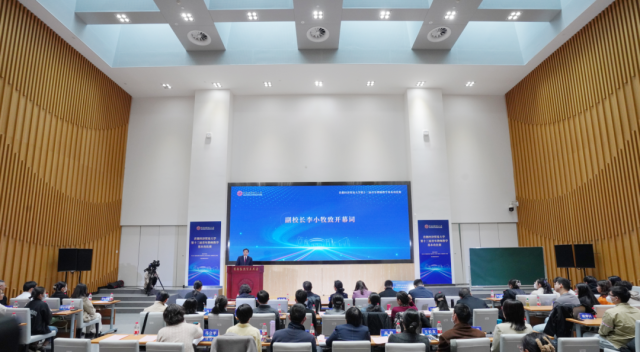
On March 9, CUEB held the Final of 13th Young Teachers Teaching Skills Competition (YTTSC) in the Press Room of the Boyuan Building. Song Lijing, Chairperson of Beijing Education Trade Union (BETU), Jiang Wentong, official of BETU, Han Xianzhou, Party Secretary of CUEB, Xu Fang, Deputy Party Secretary of CUEB and Chairperson of CUEB Labor Union, and Li Xiaomu, Vice President, attended the final competition presided over by Zhang Yiming, Deputy Minister of Teachers Affairs Department of CUEB Party Committee. Jiang Wei, Executive Deputy Chairperson of CUEB Labor Union, presided over the opening ceremony.
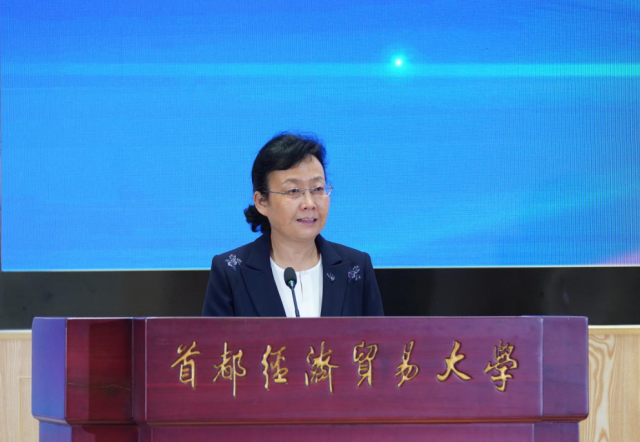
Song Lijing, Chairperson of BETU, delivers a speech.
On behalf of BETU, Song Lijing extended warm congratulations to CUEB for the successful competition. In the fifth chapter of the Report to the 20th National Congress of the Communist Party of China (CPC), President Xi expounded on “invigorating China through science and education and developing a strong workforce for the modernization drive”. Song emphasized that this is the first time the Report took coordinated plans on education, science and technology, and human resources, guiding us to develop education and technology and cultivate talent in the new era. CUEB has studied and implemented the spirit of the 20th CPC National Congress by holding the competition with the purpose of motivating teachers to study and put knowledge into practice.
Teachers are the cornerstone and the wellspring of education. Song commended CUEB for long-term efforts at strengthening the ranks of teachers and improving teaching skills of young teachers. Since Beijing initiated YTTSC in 1995, CUEB has held 12 consecutive competitions and set distinguished records among universities in Beijing. CUEB YTTSC has become a brand and platform for young teachers to improve themselves. A number of them have been the backbone of education and teaching management in the university. To nurture a new generation of capable young people to develop socialism with Chinese characteristics and carry forward the socialist cause, Song expected CUEB to keep building platforms and encourage teachers to impart knowledge to students and foster their virtues through education as role models.
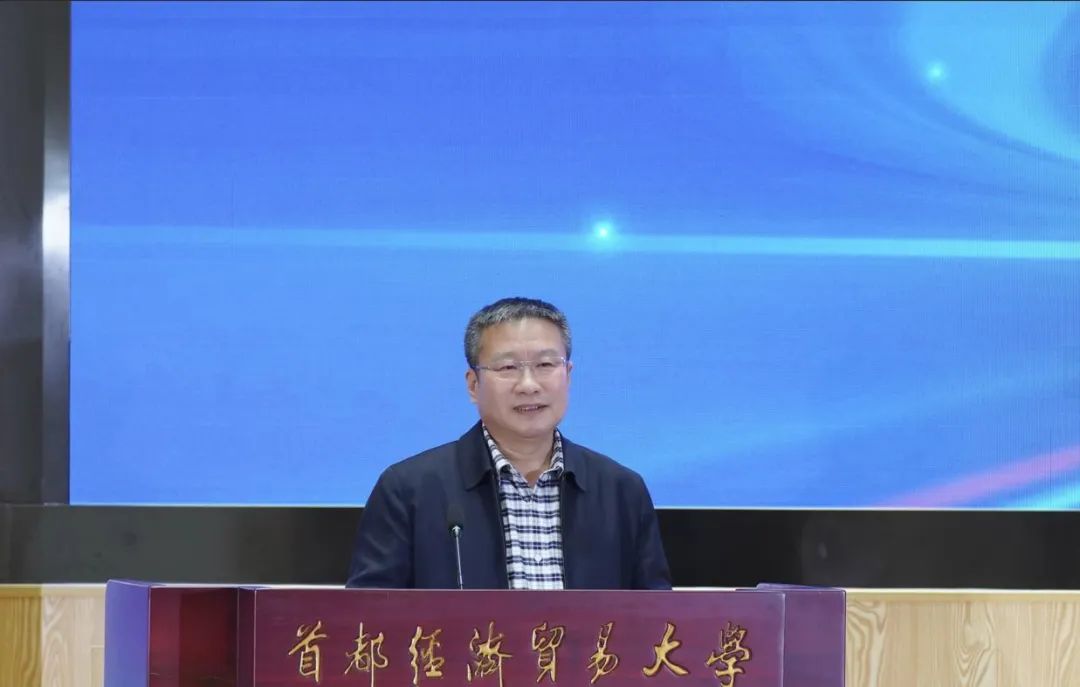
Han Xianzhou remarked that in recent years, we have built platforms for teachers to show their abilities, including YTTSC, an important platform where many young teachers in CUEB engage in. Thus, they have improved teaching skills for better results. Moreover, Han raised the following expectations in education.
First, we need to be better educators. Virtues should be fostered through education to students as they are to teachers and officials. The basic requirement for teachers is to be qualified in classroom teaching. With CUEB’s higher attention to teaching, we also expect teachers to place importance on undergraduate teaching, such as performing their duties, teaching in the classroom with respect, and improving teaching.
Second, we need to provide better education. Fostering virtues through education is the main value among universities in the new era. In recent years, CUEB has centered on curriculum-based ideological and political construction and refined “Three-Wide Education” system (which means all educational workers strive to foster students in all processes and in all respects). The atmosphere of self-conscious education has formed and went strong and natural. Teachers conduct education in a way that students are willing to accept and embrace. Han advised teachers to attach more importance to the competition design by integrating the ideological and political curriculum with their curriculum design.
Third, we need to attach importance to building education platforms. To upgrade teachers’ core competences of personnel training in the new era, CUEB should leverage “Curriculum-based Ideological and Political Teaching Competition”, YTTSC, Young Officials Management Skills Competition, and other platforms. Departments and Party organizations at all levels also should organize educational and teaching activities to strengthen the atmosphere of education and build education platforms under principles of young teachers’ progress and ideological and political education to work toward high-quality development of school undertakings.
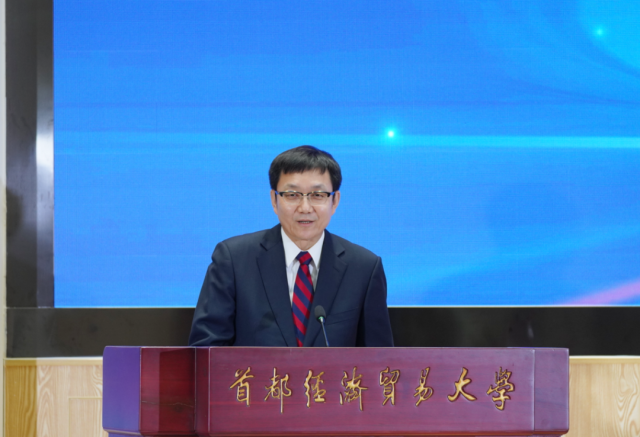
Li Xiaomu added that YTTSC has fueled CUEB’s “Three-Wide Education” system, curriculum-based ideological and political construction, and education and teaching reform and development. Li stressed that after the competition, teachers need to take three steps.
First, they need to integrate education and teaching with university’s educational goal. This means that they should improve their abilities to cultivate professionals in the new era to build CUEB into Beijing Municipal high-level research university.
Second, they need to integrate YTTSC with curriculum-based ideological and political construction which has reflected in teachers’ fruitful practices as CUEB has furthered the construction in recent years.
Third, they need to employ their creativity and design to advance classroom teaching.

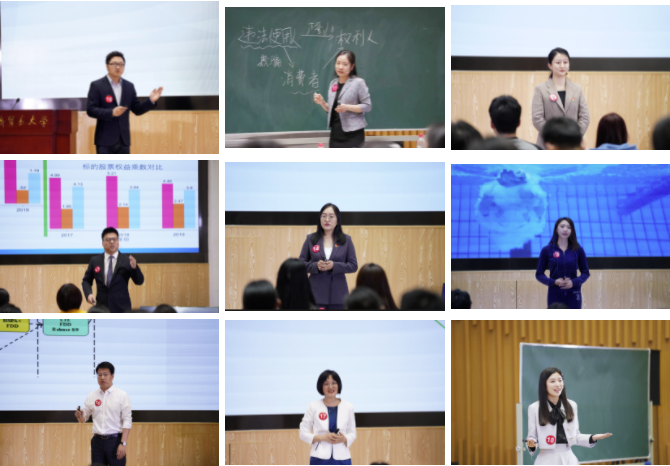
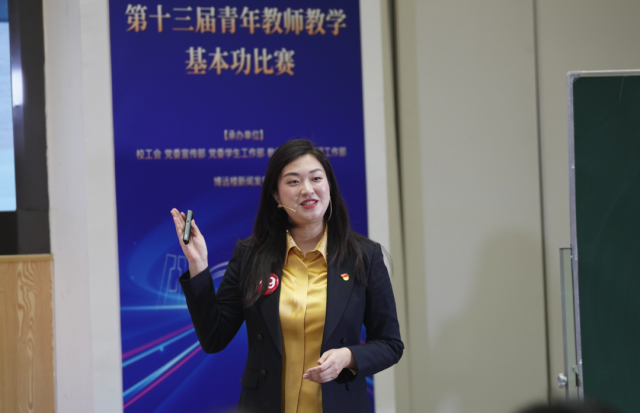
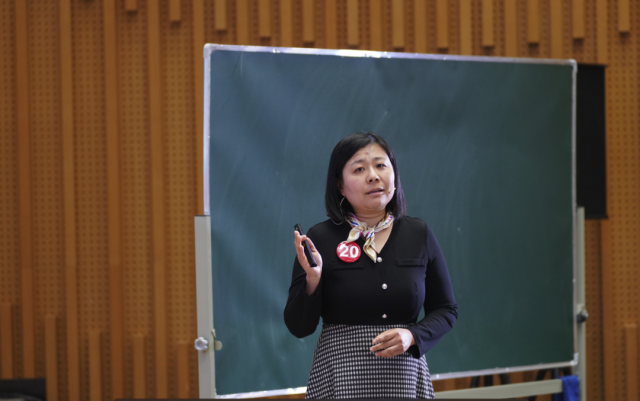
Applied various teaching methods and aids, 20 competitors demonstrate carefully-designed content to the audience. “A high inventory turnover indicates high liquidity, which improves business performance …” said Sun Zeyu, teacher from School of Accounting, who analyzed Haitian flavouring & Food Co. Ltd.’s inventory turnover as a public company and guided students to restore its business data by accounting data, thus understanding companies’ quality management. Sun Meng, teacher from School of Public Finance and Taxation, introduced concerns about the “harvesting of unripe green wheat for silage” and analyzed how finance influences agricultural expenditure so that students had a better understanding of “the relationship between government and market”, a classic question in finance. Mao Ailin, teacher from School of Labor Economics, whose class was involved in a discussion about the “sudden death of a 60-year-old courier”, provided students with insights into identifying and offering compensation for work-related injury for some people in need, given the aging population, large-scale flexible employment, and other China’s conditions.

Xu Fang announces the list of winners.
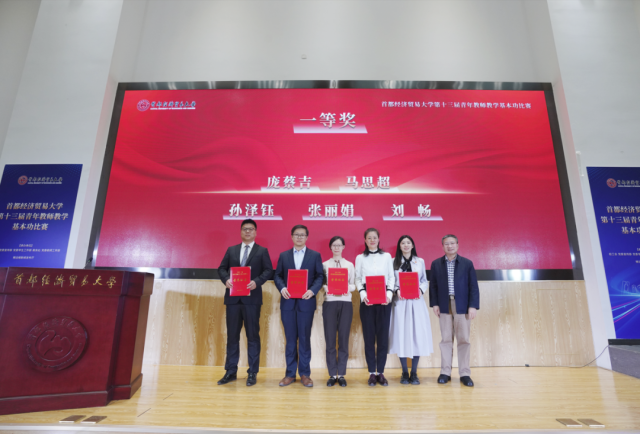
Han Xianzhou presents awards to the first-place winners.
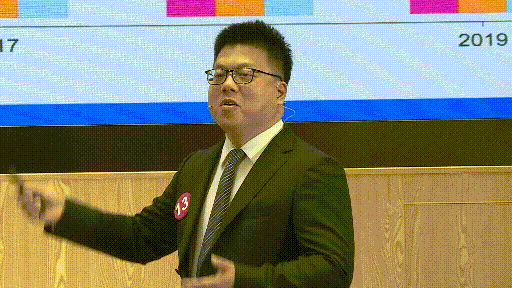

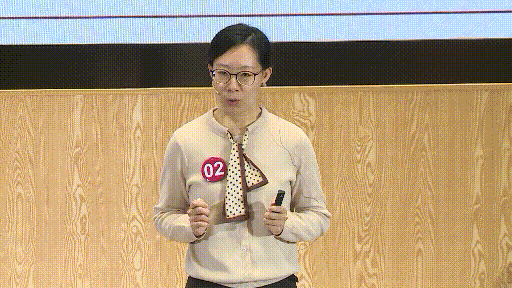
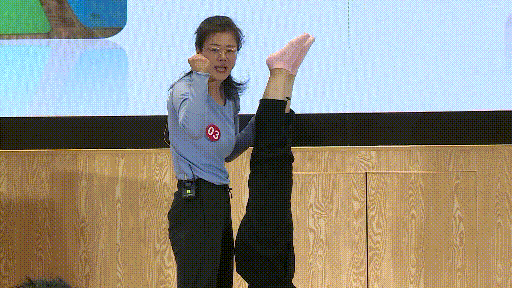
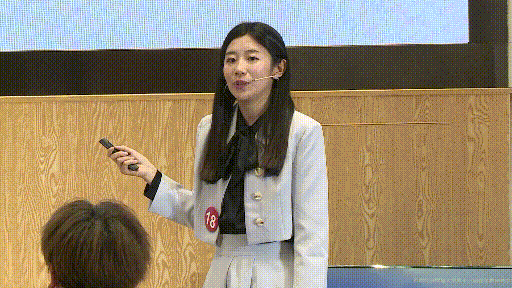
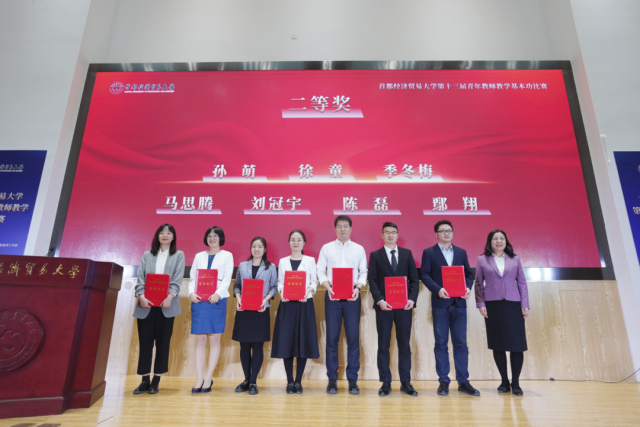
Xu Fang presents awards to the second-place winners.

Li Xiaomu presents awards to the third-place winners.
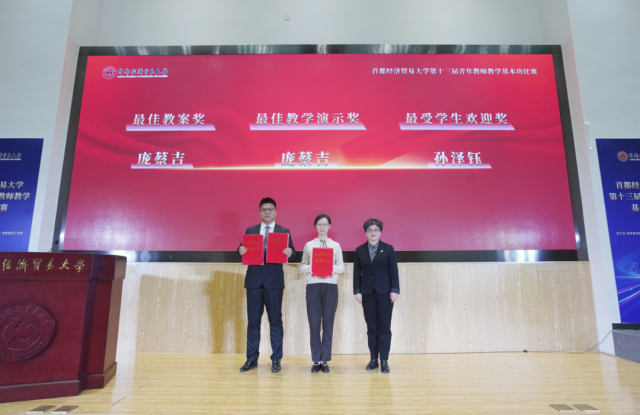
Fu Lin, Administrative Vice Minister of the Party Committee Publicity Department, presents awards to the individual award winners.
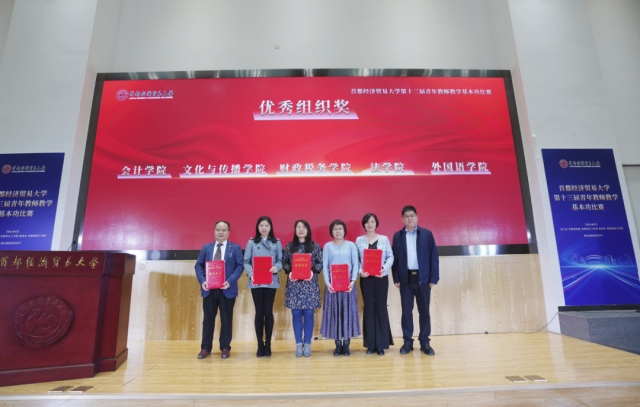
Zhang Tong, director of the Party and Governance Office, presents awards to the outstanding organization award winners.
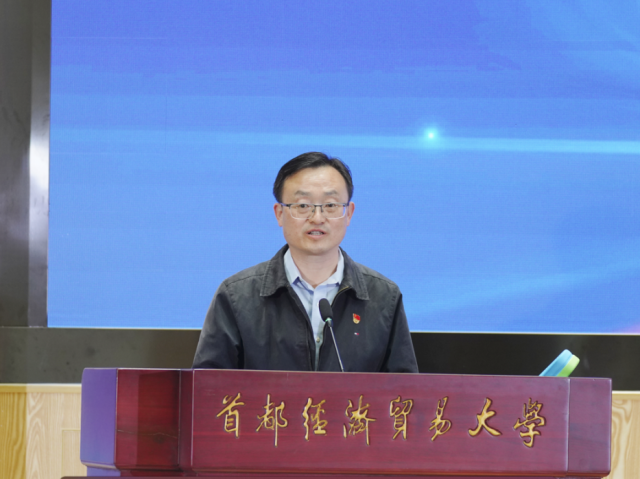
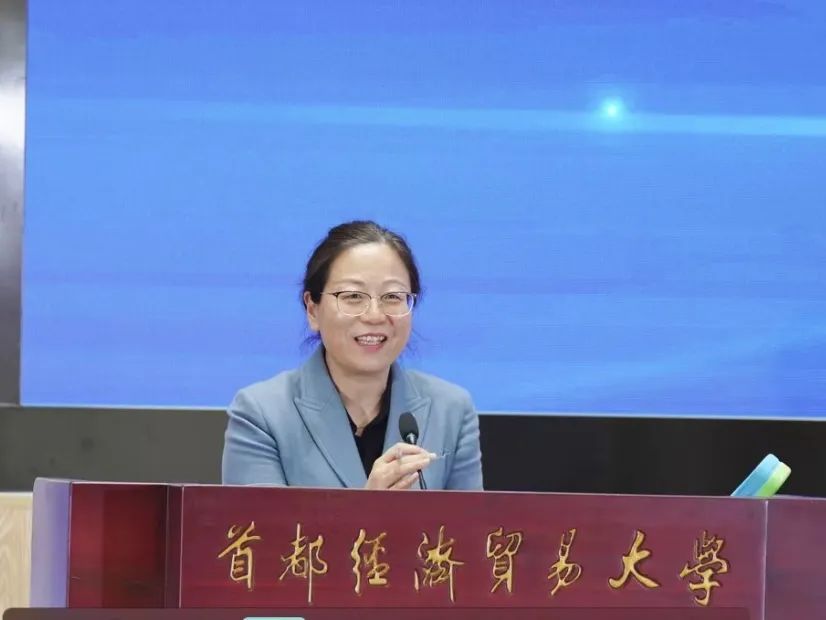
Judge Yu Peng commented on the contestants’ performance in stage presence, professional expertise and content innovation. Yu is a representative of professional judges and the Deputy President from School of Accounting (taking charge of the school). He remarked that competitions always come after the improvement of teaching competence. He encouraged teachers to learn from the superb performance of others and stay true to the original aspiration of cultivating talents and seek self-fulfillment. Judge Xie Haixia, Director of the International Cooperation and Exchanges Office and Professor of the School of Law, shared her gains in knowledge, methods, ideas and skills through this competition. She called on young teachers to move forward and embrace new technologies in a way to become the irreplaceable ones with thoughts, charisma, passion and ideals.
Judge Li Muyang, undergraduate from College of Business Administration, said, “Teachers are very innovative in the course design and classroom teaching and the eye-catching PPTs make the courses a great experience. We can immerse in the scenarios set by the teachers naturally and apply their professional skills to solving practical problems. We look forward to taking such fascinating lessons in the following days.” “The styles, methods, and tones of teachers and the designs of the presentations are all worth learning, especially the incorporation of the ideological elements in the courses, which is very clever and interesting and enlightens me deeply,” said online audience member Zhang Yiran, young teacher from School of Public Finance and Taxation.
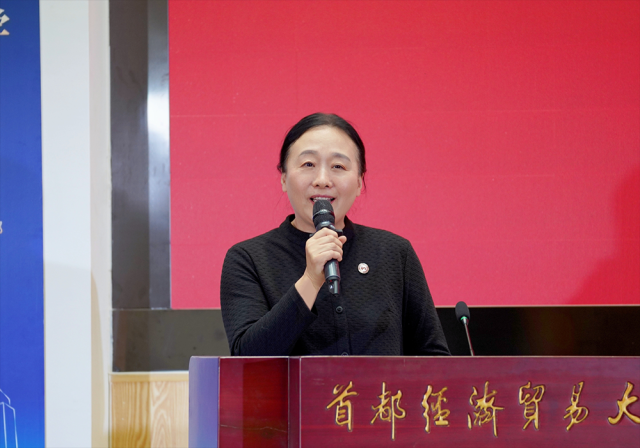
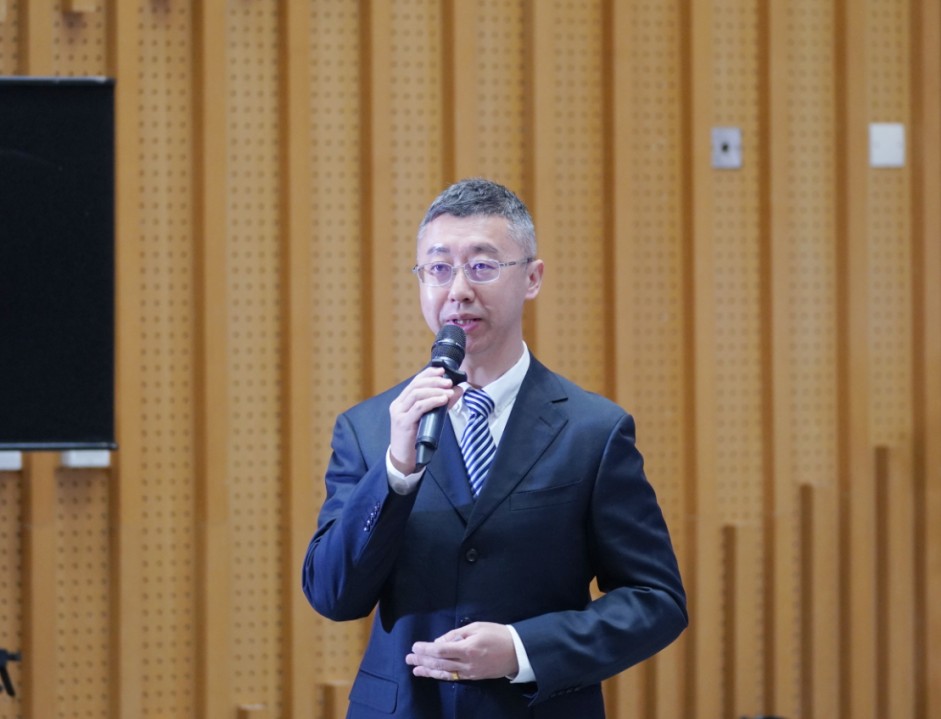
The competition was co-organized by the Labor Union, Party Committee Publicity Department, Student Affairs Department of the Party Committee, Academic Affairs Office and Teachers Affairs Department of the Party Committee, attracting more than 300 participants from 17 teaching units. The secretaries, deans and vice-deans (taking charge of teaching) of the teaching units, Beijing's renowned teachers and senior professors formed the team of professional judges. The Student Affairs Department of the Party Committee selected 17 outstanding student representatives from each college to serve as student judges. The competition was broadcast live online, with over 500 views.
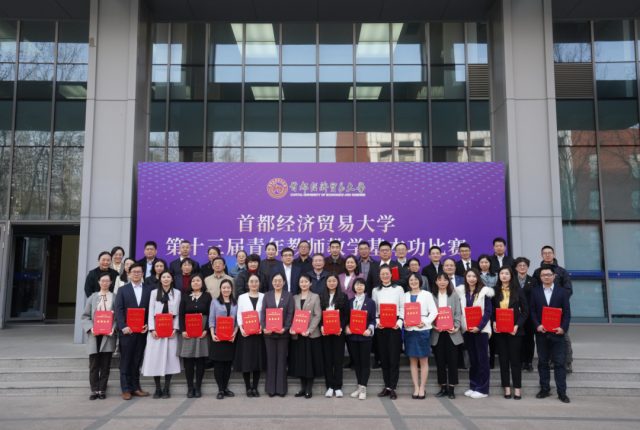
Award List
First Prize
Pang Caiji International School of Economics and Management
Ma Sichao School of Finance
Sun Zeyu School of Accounting
Zhang Lijuan Overseas Chinese College
Liu Chang School of Foreign Studies
Second Prize
Sun Meng School of Public Finance and Taxation
Xu Tong Overseas Chinese College
Ji Dongmei School of Law
Ma Siteng College of Urban Economics and Public Administration
Liu Guanyu School of Management and Engineering
Chen Lei School of Law
Yan Xiang School of Accounting
Third Prize
Mao Ailin School of Labor Economics
Jia Huiyuan College of Business Administration
Su Erdou School of Economics
Yin Zhi School of Business
Liang Xiao CUEB Sports Department
Hao Ran School of Marxism Studies
He Lei School of Culture and Communication
Zhang Saiyin School of Statistics
Best Teaching Plan Award
Pang Caiji International School of Economics and Management
Best Teaching Demonstration Award
Pang Caiji International School of Economics and Management
Most Popular Teacher Award
Sun Zeyu School of Accounting
Best Organization Award
School of Accounting
School of Culture and Communication
School of Public Finance and Taxation
School of Law
School of Foreign Studies
